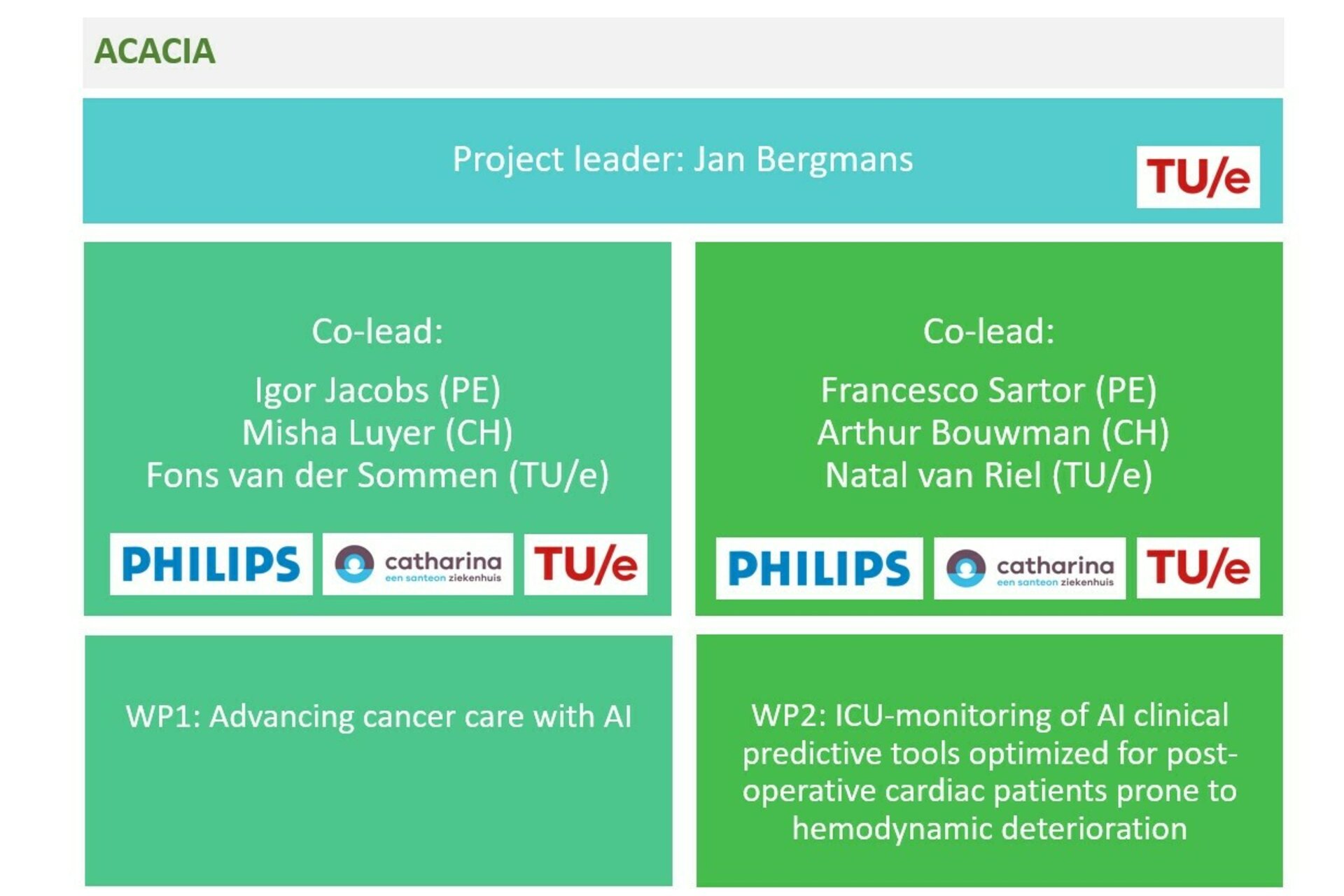
Cardiac diseases
For cancer, early detection, timely and accurate diagnosis and staging, and subsequent selection of the appropriate treatment for each patient are critical factors to improve patient outcomes. Diagnostic imaging plays an integral role in many phases of a patient’s care path.
The project will build on the recent developments of AI technology to better support image analysis, achieve earlier detection and better characterization of cancer and improve monitoring of response to treatment. It will shape optimal physician-AI collaboration and develop tools and methods for bringing AI to clinical practice and evaluate actual use, trust, and experience with AI.
The ACACIA project
Artificial intelligence (AI) outsmarts the human brain at recognizing patterns in large volumes of data. However, AI solutions are still rarely successfully adopted in clinical practice and therefore their impact on patient outcomes remains limited. The reason for this is a lack of human-centred design of AI. The Eindhoven AI Systems Institute selected various research projects to advance this.
The ACACIA project aims to address critical unresolved challenges in physician-AI collaboration to advance cancer and cardiac care. ACACIA involves a close collaboration between engineers, designers, and clinical experts from the Eindhoven MedTech Innovation Center (e/MTIC). The Eindhoven University of Technology (TU/e), Catharina Hospital (CH) and Philips Eindhoven (PE) will join forces to co-develop new technological solutions using advanced AI methods in a controlled clinical environment.
The project will run for ~5 years and consists of two parts that address distinct MedTech needs in a clinical setting:
1. Advancing cancer care with AI
Addresses the question how we can make AI for oncological decision support “ready” for real-world conditions in clinical practice. It will develop a novel generalizable AI framework for cancer classification and delineation in radiological images, and generic tools within this framework to support robust and trustworthy physician-AI collaboration.
2. ICU-monitoring of AI clinical predictive tools optimized for post-operative cardiac patients prone to hemodynamic deterioration
Develops AI models to predict hemodynamic deterioration in patients admitted to the intensive care unit after cardiac surgery. This project also includes testing the clinical and cost-effectiveness impact of these models deployed by clinical decision support tools and implemented onto a support application accessible from the Philips ICU Patient Monitor.

-
Project leader
Nadia El IdrissiMeike Jonker 7.069Alistraat6021KJ IJsselmuiden